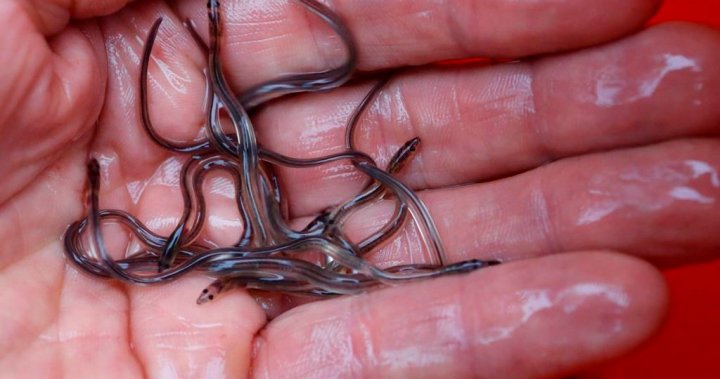The federal government is no longer moving forward with its plan to redistribute the wealth of Nova Scotia’s baby eel harvest from large licence holders to individual fishers after receiving backlash from the industry.
A statement from Fisheries Minister Diane Lebouthillier’s office said the minister reached the decision after listening to feedback from stakeholders in consultations held by the Department of Fisheries and Oceans (DFO) in recent weeks.
“Minister Lebouthillier is proud to have spearheaded the successful effort to add stronger regulations and enforcement mechanisms to the toolbox available to DFO for this fishery,” Lebouthillier’s acting communications director Andrew Richardson said.
“However, the 2025 elver fishing season will not include the pilot program to expand commercial access to this fishery.”
The department first informed Maritime commercial groups and fishers of the proposed pilot project in a letter in mid-October, designed to combat unlicensed fishing of the baby eels, known as elvers, and violent confrontations that have shut down the last two seasons.

A subsequent letter from the DFO in December to fishers detailing the planned redistribution said the nine commercial licensees that dominate the fishery would lose between 60 per cent and 90 per cent of their quotas — without compensation from the federal government.

Get breaking National news
For news impacting Canada and around the world, sign up for breaking news alerts delivered directly to you when they happen.
Global News has viewed both the October and December letters, as well as a breakdown of the quota redistribution plan included with the December letter.
Under the proposal, 27 per cent of the total Maritime catch of about 10,000 kilograms would have shifted to 120 people who had been working for the licensees. A further 1.5 per cent of the lucrative catch would go to 30 harvesters of adult eels.
Commercial license holders said the redistribution would cripple their businesses. Many of the individual fishers the project was intended to benefit, meanwhile, said they would rather remain employees of those commercial fishers than be pitted against them and face chaos over how they would store and sell their catch.
The DFO postponed an information session on the redistribution proposal earlier this week, saying it needed more time to evaluate comments it received on the plan.
Genna Carey, president of the Canadian Committee for a Sustainable Eel Fishery, said in a statement that its members “are tremendously relieved” by Lebouthillier’s decision.
“With so many changes to for this coming 2025 season, including new regulations and the addition of several hundred licensed Indigenous fishers, the potential for more chaos and and premature closure was just too high,” Carey said.
The proposed redistribution scheme came after an earlier proposal in June that would redistribute 50 per cent of the overall quota to local Indigenous groups to recognize their court-approved right to make a moderate living from hunting, gathering and fishing.
Elver fishers previously told Global News they felt their concerns about quota redistribution were being ignored by the government.
A meeting held between DFO officials and Nova Scotia elver fishers in late October about the proposal — a recording of which was reviewed by Global News — grew heated as fishers angrily accused the officials of putting their livelihoods at risk.

At peak value, elvers have sold at about $5,000 per kilogram, according to DFO — more than lobsters, scallops or salmon — making them the most valuable fish by weight in Canada. Commercial fishers say the current value is well below that and fluctuates year to year and within seasons.
But the potential for sky-high prices has made the fishery highly susceptible to poaching and bad actors from abroad.
China is the dominant market for elvers, and some buyers will both underpay on the black market and overpay for licensed catches, driving out legitimate Chinese buyers, according to fishers who spoke to Global News.
The fear among commercial groups was that individual fishers would sell to the highest bidder rather than resisting the encroachment of bad actors.
The federal government closed the commercial baby eel fishery on March 11 after violence and intimidation plagued last year’s fishing season in Nova Scotia and New Brunswick. The 2020 season was also shut down for similar reasons.
Carey said commercial elver fishers “continue to have concerns about enforcement this coming season,” along with “deep reservations” about the First Nations quota redistribution program — also without compensation for existing licence holders.
However, Carey said Thursday’s decision and new regulations to crack down on poaching and illegal shipping of elvers “give us hope for a successful season this year.”
— with files from the Canadian Press
© 2025 Global News, a division of Corus Entertainment Inc.





